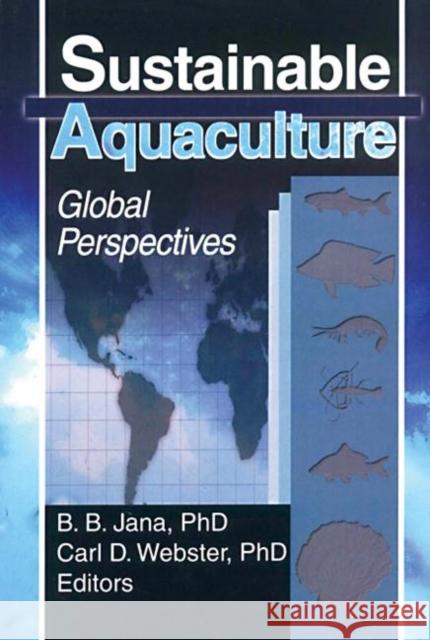Sustainable Aquaculture: Global Perspectives » książka
Sustainable Aquaculture: Global Perspectives
ISBN-13: 9781560221050 / Angielski / Twarda / 2003 / 366 str.
Sustainable Aquaculture: Global Perspectives
ISBN-13: 9781560221050 / Angielski / Twarda / 2003 / 366 str.
(netto: 536,42 VAT: 5%)
Najniższa cena z 30 dni: 528,93
ok. 22 dni roboczych.
Darmowa dostawa!
Examine the world's leading aquaculture producers Sustainable Aquaculture: Global Perspectives is a one-of-a-kind primer on the world's leading sources of aquatic production, presenting expert commentary that includes the latest advancements, developments, and research findings. The book examines essential elements of aquaculture (water quality, nutrition, genetics, culture methods) and addresses problems such as over-fishing, coastal and wetland destruction, and habitat and environmental degradation. Sustainable Aquaculture: Global Perspectives addresses policy measures that are essential for the long-term sustainability of the world's fisheries and the long-term employment of those who rely on the aquaculture industry for their livelihood. As the world's population increases at an alarming rate, the question of how to ensure global food security is one of extreme importance.But the world's total yield is below expectations and the book examines the reasons why: the under-utilization of natural resources, the lack of adoption of modern scientific methods, the lack of standardized, proven pond fertilization protocols; long-term inbreeding and the loss of genetic variability due to genetic drift. Sustainable Aquaculture: Global Perspectives also addresses: freshwater pearl culture breeding programs pond fertilization regimes fish diseases in tropical climates indoor recirculating culture systems water quality management for shrimp farming and much more With much of its information available in one place for the first time, Sustainable Aquaculture: Global Perspectives is invaluable as a textbook for introductory aquaculture courses and is an essential resource for professionals and researchers.
Examine the world's leading aquaculture producers!
Sustainable Aquaculture: Global Perspectives is a one-of-a-kind primer on the world's leading sources of aquatic production, presenting expert commentary that includes the latest advancements, developments, and research findings. The book examines essential elements of aquaculture (water quality, nutrition, genetics, culture methods) and addresses problems such as over-fishing, coastal and wetland destruction, and habitat and environmental degradation.
Sustainable Aquaculture: Global Perspectives addresses policy measures that are essential for the long-term sustainability of the world's fisheries—and the long-term employment of those who rely on the aquaculture industry for their livelihood. As the world's population increases at an alarming rate, the question of how to ensure global food security is one of extreme importance. But the world's total yield is below expectations and the book examines the reasons why: the under-utilization of natural resources, the lack of adoption of modern scientific methods, the lack of standardized, proven pond fertilization protocols; long-term inbreeding and the loss of genetic variability due to genetic drift. Sustainable Aquaculture: Global Perspectives also addresses:
- freshwater pearl culture
- breeding programs
- pond fertilization regimes
- fish diseases in tropical climates
- indoor recirculating culture systems
- water quality management for shrimp farming
- and much more!











